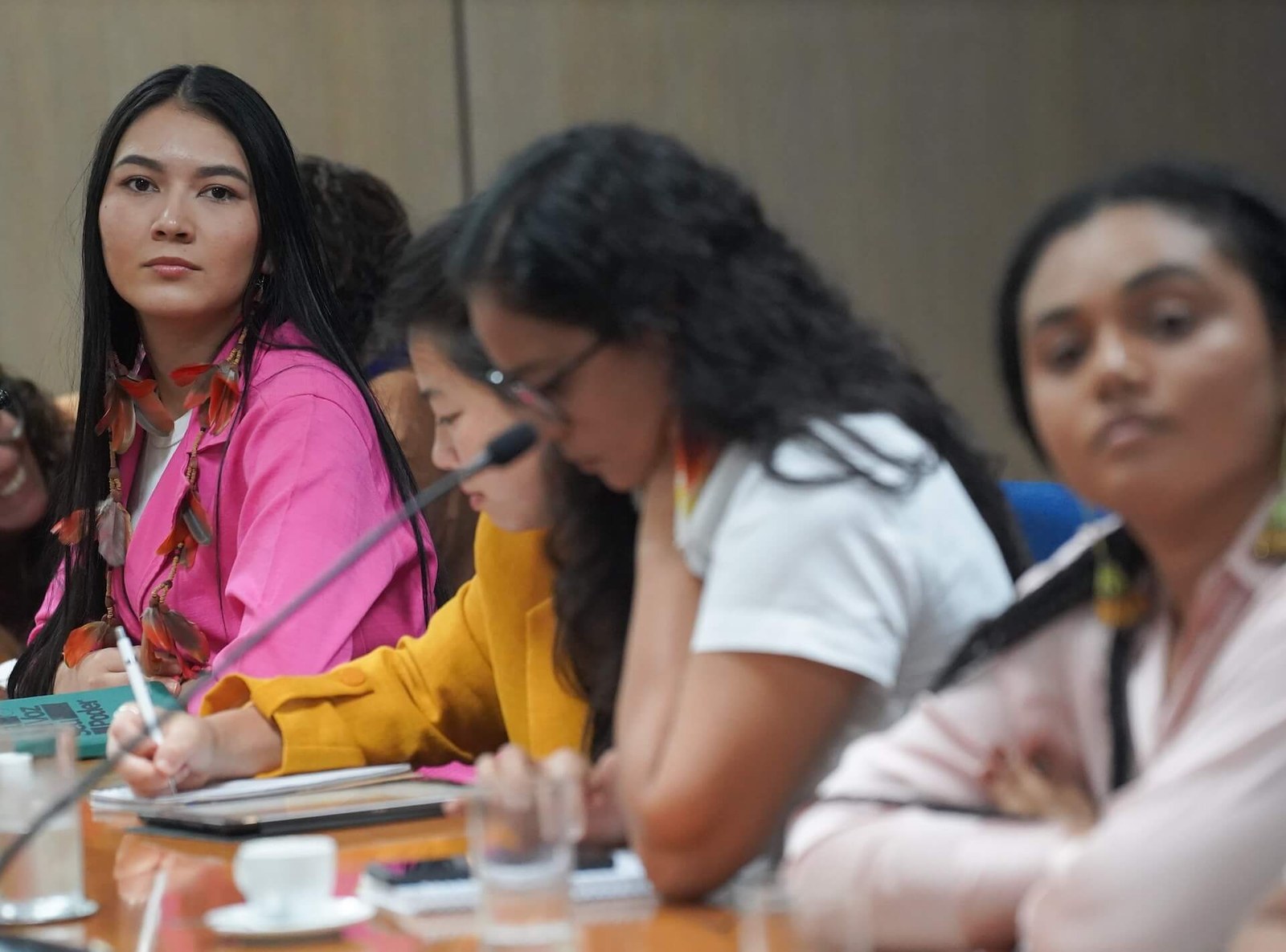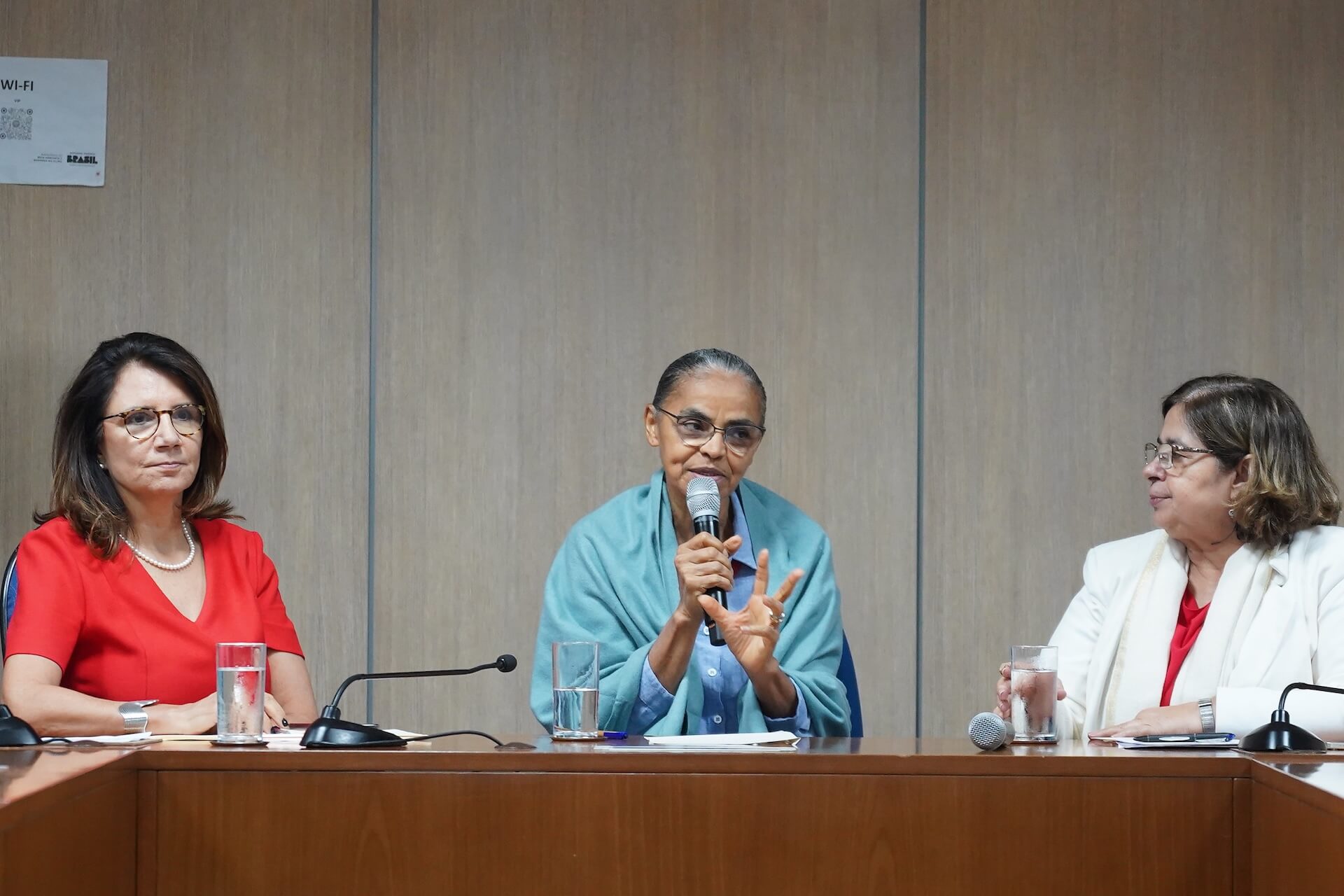“A just ecological transition includes everyone,” says Marina Silva at COP30 dialogue on gender equality
The meeting on the role of women in the climate agenda was also attended by the Executive Director of the conference and the Minister of Women.

On Thursday (10 April), the Minister of Environment and Climate Change, Marina Silva, said that "a just ecological transition includes everyone and leaves no one behind," opening the dialogue with civil society on the inclusion of gender equality in the COP30 agenda, at the headquarters of the Ministry of Environment and Climate Change (Ministério do Meio Ambiente e Mudança do Clima/MMA) in Brasília (DF).
"We want a country that is economically well-funded, socially just, politically democratic, and culturally diverse. COP30 is a great opportunity, and we need to identify the areas we want to take forward," she said.
The Ministry of Environment and Climate Change (MMA), the Ministry of Women (Ministério das Mulheres), the Brazilian COP30 Presidency and UN Women organized the hybrid meeting (face-to-face and remote participants) on gender equality. The meeting was chaired by the National Secretary for Climate Change and Executive Director of the Conference, Ana Toni, and attended by the Minister of Women, Cida Gonçalves, as well as representatives from the Ministry of Foreign Affairs (Ministério das Relações Exteriores/MRE) and the General Secretariat of the Presidency of the Republic (Secretaria-Geral da Presidência da República/SGPR).
At COP30, a new Gender Action Plan (GAP) will require a review of the Lima Work Program on Gender (LWPG) and the activities implemented over the past 10 years. The LWPG was formalized on the negotiating agenda at COP20 in Lima, Peru, to integrate gender considerations into implementing the Convention and the Paris Agreement.
For Minister Cida Gonçalves, women must be included in this debate. "More than a result for COP30, Brasil's real legacy at this summit will be the inclusion of a gender perspective and women's rights as a foundation for addressing the climate crisis and promoting a just transition," she said.
Since 2011, and shortly before COP17, the United Nations Framework Convention on Climate Change (UNFCCC) has recognized the Women and Gender Group as an official interest group in the COP process.

Women and climate change
Ana Toni stressed that the dialogue on gender equality -and women - as part of the process of building the climate agenda includes the Climate Plan, a roadmap for action to address climate change in Brasil until 2035, developed by the federal government with the 23 ministries.
"We are already in dialogue with these groups in the context of the Climate Plan, especially on mitigation and adaptation. This hearing represents the continuity of this participation, now focusing on COP30, to ensure that climate change from a gender and women's perspective is a priority in the different pillars of the conference," she said.
The Climate Plan has pillars that focus on mitigation, the reduction of greenhouse gas emissions, the high level of greenhouse gases in the atmosphere that causes global warming, and the adaptation of natural and human systems to the effects of climate change.
In addition to the National Mitigation and Adaptation Strategies, the Climate Plan will include sectoral-thematic plans: seven for mitigation and 16 for adaptation. Gender issues are crosscutting, meaning that they must be included in all of them. Until April 25, the sectoral and thematic adaptation plans will be subject to public consultation Brasil Participativo platform (Plataforma Brasil Participativo).
Climate change exacerbates gender inequalities and affects women and girls more severely. They suffer greater exposure to violence, drop out of school and work, and are overburdened with family and community care, food insecurity, and barriers to access to health and care.
According to the United Nations Children's Fund (UNICEF), 97.6% of Brazilian children and adolescents are exposed to climate impacts, and only a portion of climate finance is directed toward meeting their needs.
During the hearing, representatives of movements promoting gender equality stressed the importance of recognizing structural inequalities in the territories. They also discussed violence against women, especially indigenous women, the impact of mercury contamination, the lack of information on climate change, and the difficulty of discussing the environmental agenda in contexts marked by hunger and food insecurity.
They also called for the inclusion of transsexual people and transvestites in environmental and climate debates, and greater access to specific public policies for women in traditional territories.
In addition, they highlighted the role of farmers' women in food production and agroecology as a path to climate equality, the denunciation of the negative effects of excluding agricultural models, the protection of agrarian reform and the strengthening of sustainable practices, such as the increased use of renewable energy in the Brazilian energy matrix.
The COP30 Presidency has gathered contributions from different sectors of society to prepare a document that will serve as a basis for strategies for the conference. As part of the run-up to the summit, dialogues with representatives of the Black Movement, indigenous peoples, and traditional communities have already taken place. More dialogues are planned for the coming months.
English version: Trad. Bárbara Menezes
Proofreading by: Enrique Villamil

